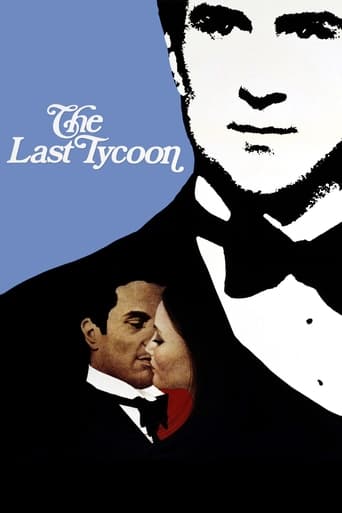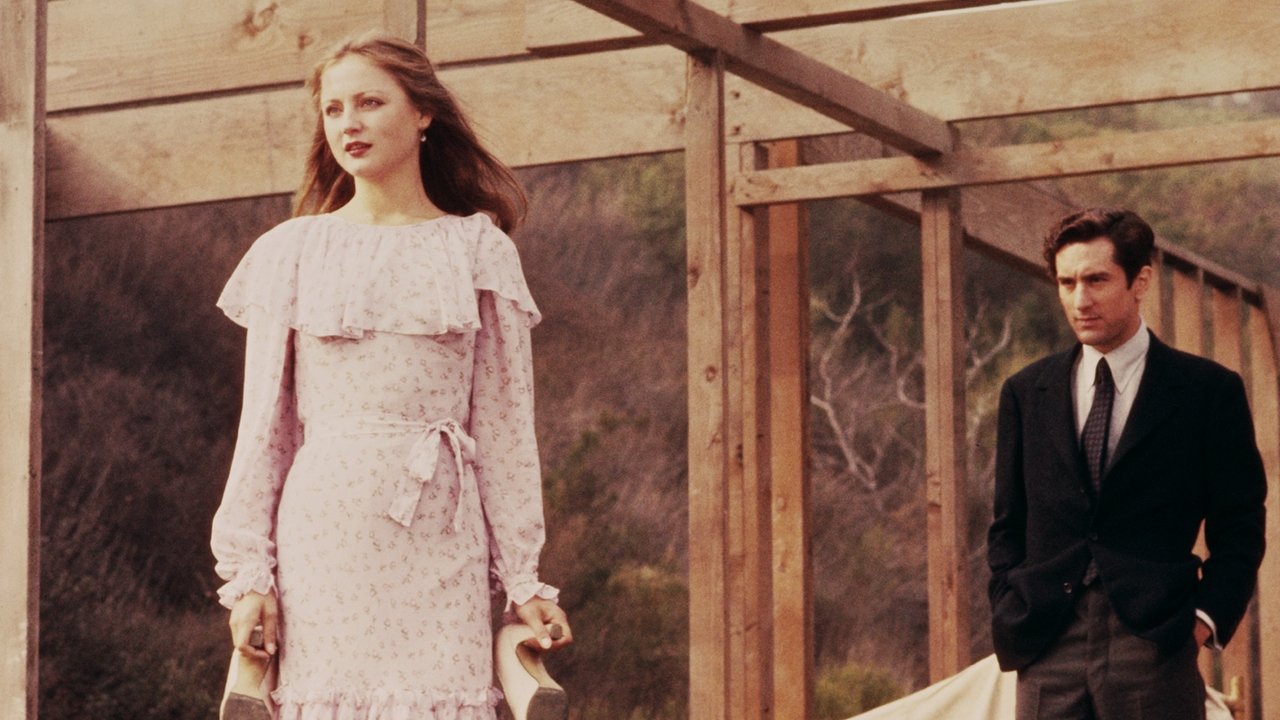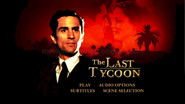bbmac79
Horrible rendition of decent Fitzgerald story-DeNiro and major stars were good- TONY Curtis and model playing DeNiro love interest were the worst ever!!! Storyline moved along well when the major stars were on screen BUT time just stood still when the other two were on screen! THERESA Russell was drop dead gorgeous in this film.
aimless-46
F. Scott Fitzgerald's time in Hollywood inspired him to write "The Last Tycoon", his final novel. Fitzgerald had a tendency to model his heroes on men he admired and then infuse them with a lot of himself. In this case he choose Irving Thalberg, who for a brief period in the late 20's and 30's was the "boy genius" production chief at M-G-M, until his death at the age of 37 in 1936. Thalberg was second to none in his instinctive feel for what would make a successful film but he only provided the bones for Fitzgerald's protagonist, the author fleshed the character out with little or no attempt to incorporate Thalberg's personality or private life. Instead Fitzgerald opted for Abraham Lincoln as the model for much of what was Monroe Stahr - including his novel's title, as Lincoln was frequently referred to by contemporary media as "The Tycoon" and like Stahr was fighting a war on many fronts.As a film, the "The Last Tycoon" (1976) is far less than the sum of its generally excellent parts, which could also be said of its unfinished source novel. It is full of structural discord that many viewers will find quite frustrating. A relatively large budget, excellent production design, fine performances by a cast nicely matched to the characters they play, clever editing, and first-class cinematography. Then throw in a screenplay that is true to its unfinished source novel. Yet instead of box office and critical success you get one of the more expensive flops in movie history. But you also get a very ambitious film that is about as interesting as any you will find, with a cutting edge story that is no less powerful for its extremely small target audience; all nicely matched by the ambitious, paternalistically cast, and expensive film-within-a-film that the title character is pushing though despite it being an obvious money-loser for the studio.The adaptation's trouble lies almost solely with the film's love interest, Kathleen Moore, played by Ingrid Boulting. Kathleen is all Fitzgerald, an Irish will-of-the-wisp given to irresponsible self-indulgences and beguiling frankness. Woman such as Kathleen were central to Fitzgerald's world view, he believed that they inspired and tortured any man cerebral and imaginative enough to appreciate them. While such a relationship can be translated to the screen (often easier than in a book because film is a visual medium), it will only connect with a small segment of viewers, most others will find it puzzling.The most interesting detail of the entire production is the way Boulting is costumed, lit, and filmed in her scenes. She glows in these shots because Kathleen is even more of an ethereal character than Gatsby's "Daisy", Monroe sees her as extremely delicate and light in a way that seems too perfect for his world. She is elusive to him, almost translucent, which only makes her all the more precious. Three years later this concept would be carried to its extreme in "All That Jazz" with Jessica Lange's "Angelique" who literally had no physical substance. The point from a "language of film" perspective is that a filmmaker presents a character in this manner to immediately clue viewers into that character representing an all-consuming motivational force that will drive the hero throughout the story - often to doom.Kathleen makes her entrance in one of the best scenes in cinema history; with the post-earthquake chaos of the flooding studio lot looking like 'thirty acres of fairyland' at night, a radiant mystery woman climbs down from a gigantic floating head (fabricated to be used by the studio as a prop the following week) and smiles at Monroe Stahr, the last of the great Hollywood princes.To its credit, the screenplay is true to Fitzgerald's vision and Boulting and DeNiro effectively bring their relationship dynamic to the big screen. But potential viewers should understand that their often nonverbal relationship is the core element of the entire film, the rest of the story is simply a backdrop. Fitzgerald struggled with "The Last Tycoon" because he was in effect writing two books in one: a "psychological" novel about Stahr and a social commentary about Hollywood. Harold Pinter's difficulties with the screenplay stemmed from the same issue Fitzgerald had been unable to resolve, just where to strike the balance between the two stories.The emphasis on Stahr means that the excellent supporting cast, from Tony Curtis as a troubled movie star to Robert Mitchum as a cynical studio head to Donald Pleasence as a perplexed English writer, do not get any substantial screen time; but are relegated to insubstantial supporting parts in the service of giving DeNiro the room to showcase his character's roller coaster of elation and sadness. The only exception is Teresa Russell's Cecilia (the story's Nick Carraway) whose sense of right and wrong helps to elevate her above the others.Then again, what do I know? I'm only a child.
Murtaza Ali
The Last Tycoon, Elia Kazan's swan song based on F. Scott Fitzgerald's final, unfinished novel of the same name, is an important work of cinematic art. The Last Tycoon can be approached in different ways depending purely on the viewer's taste and his level of understanding.First, at its most basic level, it is a film about films and people who make them: writers, directors, actors, producers and studio bosses, not in the increasing order of their creative importance but in terms of their actual influence as prevalent during the Golden Age of Hollywood.Second way to approach it is to look upon it as a tale of unrequited love. Third, as a film about the fall of a man from omnipotence to oblivion. Fourth, The Last Tycoon is about the inflated human ego and the Lear-like grand operatic collapse it so often triggers. Fifth and the most complex way to approach it would be as a surrealistic expression of an artist working at the height of his powers and desperate to make the most of the final few opportunities left with him.The Last Tycoon features quite a few memorable performances including cameos from Tony Curtis, Jeanne Moreau and Jack Nicholson. The film revolves around a Hollywood movie producer, named Monroe Stahr, slowly working himself to death. Robert De Niro is absolutely breathtaking to watch as Stahr—a role fashioned upon Irving Thalberg, the production chief at MGM during the late '20s and '30s. The scenes that he shares with Jack Nicholson—the only ones that the two legendary actors ever shared on the celluloid—are pure gold. De Niro shares great chemistry with the two female leads who complement him really well. While Ingrid Boulting is delectable to watch in her enigmatic portrayal of Kathleen Moore, Theresa Russell creates a strong impact in the limited screen time she gets. The Last Tycoon, as underrated as it is, deserves much more attention than what it has received over the last four decades. The movie succeeds in breaking the glittery image of the Tinsel Town, which is often portrayed as some kind of a Shangri-La for the young and upcoming artists, by presenting a caricature that's far more realistic. The movie may lack the refinement of a work of commercial art but its unfinished crudeness definitely makes it more lifelike. It's a movie that hasn't lost its relevance with time and perhaps that's what makes it a timeless gem of cinema. The restless viewers can afford to stay put, but those with patience must check it out, for they would be thoroughly rewarded.For more, please visit my film blogsite:http://www.apotpourriofvestiges.com/
kastellos
This film is best forgotten.I doubt if there is anyone who is a greater fan of Kazan than I, and it pains me to write this, but this film is simply horrible. I don't blame just Kazan; the story and characters are illogical and very boring. The sub-plot of Curtis, Andrews and Moreau adds nothing, in fact, is a negative. The point of DeNiro's role is never made. The important theme evident in Kazan's films (Pinky, Gentleman's Agreement, Waterfront, Panic in the Streets, etc.) is completely missing in this film. The greatest fault lies with Fitzgerald, one of most overrated American authors and with Pinter, also overrated. These two, loved by critics, have given this film a halo. If the screenplay was written by John Smith based on a book by Fred Jones, the movie would be rated 2 stars out of ten, if the raters were generous.DeNiro and Russel are good (Although Russel's character is very annoying.) and Nicholson is Nicholson. The rest of the cast is mediocre. Boulting is not good at all, and in fact, she never went anywhere in her career after this film.Kazan didn't do a bad job, considering with what he was given to work.


 AD
AD




